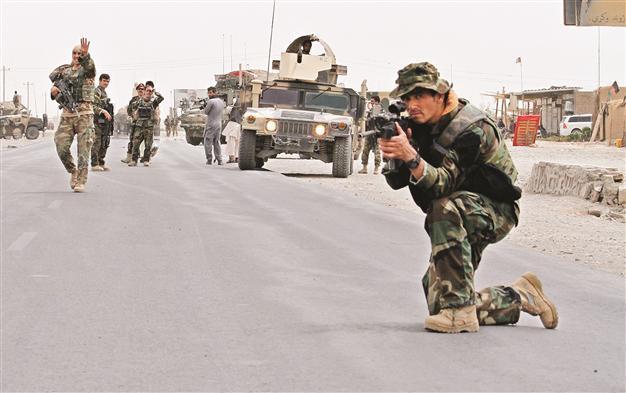Afghan security death toll unsustainable, says NATO
LONDON, England - Agence France Presse

REUTERS Photo
The NATO commander in Afghanistan has warned that the current casualty rates suffered by the Afghan army and police force are "unsustainable", in an interview published in Tuesday's Guardian.US General Joseph Dunford told the paper that Afghan security forces may need five more years of western support before being able to take over full responsibility.
"I view it as serious, and so do all the commanders," Dunford said of the toll, which has often hit 100 per week. "I'm not assuming that those casualties are sustainable." The general said "time is going to tell" whether NATO had been right to switch in June from playing a combat role to a "train, advise, assist" operation.
"I don't think you can tell that today," he added.
US President Barack Obama has promised that Afghans will take full responsibility for their security by the end of 2014, although some NATO troops will remain to provide training.
Dunford claimed that some of these soldiers may be required until 2018.
"I look at Afghan security forces development as really kind of three to five years," he explained. "I'm just talking about before they get to the standard where they may not need assistance and support any more." He also suggested that in fulfilling its "assist" role, NATO may be required to provide combat support.
In the latest wave of violence, Taliban suicide bombers and gunmen dressed as Afghan police attacked a US base near the Pakistani border on Monday and set dozens of parked NATO supply vehicles ablaze.
All three attackers were shot dead by helicopter gunships during the assault on the base in Nangarhar province, but no member of the US-led NATO mission was killed.
Afghanistan's 350,000-strong security forces are suffering a steep rise in attacks as the NATO mission winds down, with police and army casualties said to have increased by 15-20 percent since 2011.
















